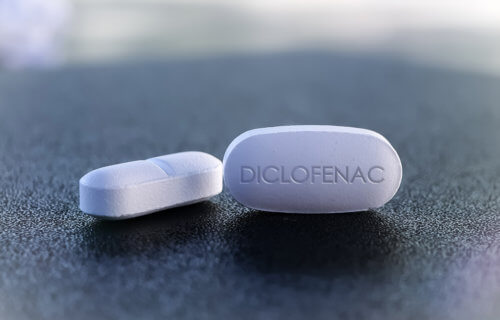BUFFALO, N.Y. — An antidote to the potentially lethal date rape drug GHB has been discovered by scientists. Researchers say that diclofenac — an anti-inflammatory medicine also known under the brand name Voltaren — can treat and prevent death in association with the drug also known as “liquid ecstasy” and “G.”
GHB became notorious when it was involved in several high-profile rape cases, including the case of Stephen Port who drugged, raped, and murdered four men by giving them fatal overdoses. Used recreationally and as a club drug, GHB has become popular on the gay chemsex scene, while also being linked to several accidental deaths. About 15 minutes after taking one small dose, a person may fall into a deep sleep or even become unconscious and may not be able to remember anything for several hours.
According to official figures, since the tracking of the drug began in the 1990s, there have been 72 deaths related to GHB. The total number is likely to be much higher, as GHB is not part of routine toxicology tests after sudden deaths. It can also be difficult and expensive to detect. Previous studies completed by the University of Buffalo researchers found that ibuprofen and ketoprofen also affected the movement of GHB in the body.
“The therapeutic utility of GHB in the treatment of narcolepsy has been overshadowed by its high prevalence of abuse. The abuse of GHB — known as Fantasy, Liquid Ecstasy, and G — carries the risk of severe adverse effects including sedation, respiratory depression, hypothermia, coma, and death,” says Dr. Marilyn Morris, from Buffalo’s School of Pharmacy and Pharmaceutical Sciences, in a statement.
“Current treatment of GHB overdose is limited to supportive care. My laboratory has identified MCT1 inhibitors as a treatment strategy to prevent death after GHB overdoses. In this research, we identified the NSAID diclofenac as an MCT1 inhibitor and demonstrated its effectiveness as a potential antidote for GHB overdose,” Dr. Morris adds.
The study, completed in animal models, is published in the journal Biopharmaceutics and Drug Disposition.
South West News Service writer Joe Morgan contributed to this report.
